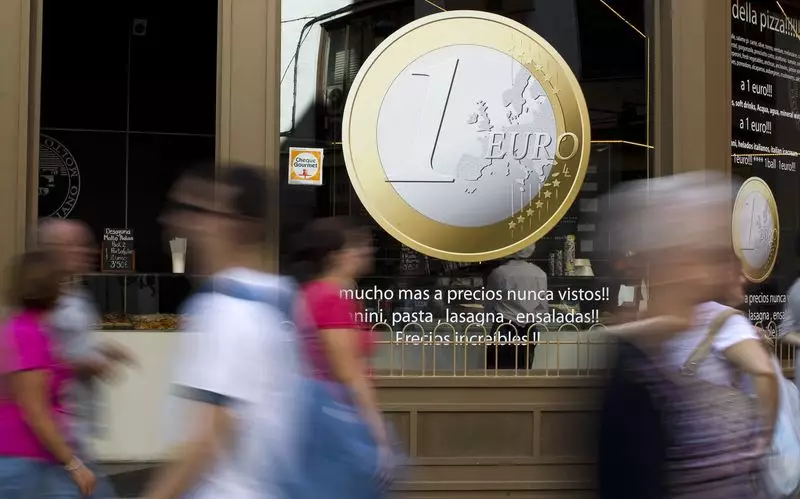In recent months, discussions surrounding the economic performance of the Eurozone have become increasingly prominent, particularly regarding consumer behavior amidst fluctuating economic indicators. Households within the Eurozone have been collectively saving a significant portion of their income, primarily as a reaction to the substantial inflation rates observed between 2021 and 2022. This financial behavior raises questions about the region’s economic recovery and growth potential as families prioritize wealth rebuilding over immediate consumption.
The European Central Bank (ECB) has provided insights into this phenomenon, suggesting that the current household saving rate — which stood at 15.7% of disposable income in the second quarter of the previous year — drastically exceeds pre-pandemic levels of approximately 12% to 13%. This shift indicates a transformative trend in familial financial priorities, driven by the erosion of real wealth due to inflationary pressures. The ECB emphasizes that high dependency on savings reflects a need for households to recover lost wealth rather than an enthusiastic embrace of consumer spending.
Moreover, the ECB points to moderating interest rates and a rebound in real incomes as contributing factors to this high saving rate. Contrarily, this robust saving behavior is expected to impede economic growth in the short term, as consumption plays a critical role in stimulating economic activity. With overall economic growth stalling just above zero for over a year, the anticipated recovery fueled by consumer spending remains elusive.
Despite the current challenges, the ECB holds a cautiously optimistic view on future consumer spending. The bank believes that a gradual decline in the savings rate—combined with continued increases in real labor income—could eventually reinvigorate private consumption. However, this recovery remains contingent upon external economic factors stabilizing and inflation rates remaining manageable. The ECB’s prediction of a consumption-driven recovery suggests that the institution is banking on a behavioral shift among households as confidence in economic stability returns.
Yet, a significant hurdle remains: whether households will transition from a mindset of savings to one of spending. The growth of savings compounded by previous inflation experiences may lead to a prolonged phase of cautious spending, thus stymying any potential recovery. The ECB’s optimism must confront the reality of entrenched consumer habits developed in response to economic instability.
While the Eurozone’s households are positioned with substantial savings—a buffer against uncertain economic conditions—the implications for broader economic growth are complex. The ECB’s analysis signifies the importance of shifting consumer confidence; to elevate economic growth, households will need to embrace spending once more. As the ECB continues to monitor these trends, it remains crucial for policymakers to consider the intricate relationship between household savings behaviors and their subsequent impact on economic recovery in the Eurozone. The battle between rebuilding wealth and fostering consumption will be a defining characteristic of the region’s economic landscape in the foreseeable future.

